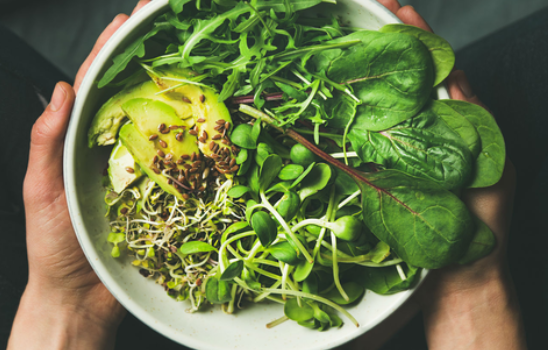
More people are choosing vegan diets for various reasons, including ethical concerns, environmental benefits, and health improvements. If you’re wondering whether going vegan can help with weight loss, the answer isn’t straightforward. While some individuals may lose weight after transitioning to a vegan lifestyle, it’s not a guarantee for everyone.
In this article, we’ll dive into the ways a vegan diet can impact weight, highlight potential benefits and drawbacks, and provide insights to help you make an informed decision about adopting a vegan lifestyle.
What is a Vegan Diet?
A vegan diet eliminates all animal-derived products, including meat, dairy, eggs, and honey. Instead, it focuses on plant-based foods, such as fruits, vegetables, grains, legumes, nuts, and seeds. While many people adopt veganism for ethical or environmental reasons, it can also offer various health benefits, including potential weight loss.
Can a Vegan Diet Help with Losing Weight?
Weight loss can depend on several factors, and switching to a vegan diet can certainly influence some of these factors. For instance, a study conducted in 2015 found that people on vegan diets experienced greater weight loss compared to those consuming animal products. Here are some key ways a vegan diet may support weight loss:
Calorie Balance
Plant-based foods tend to have fewer calories per gram than animal-based foods. For example, 100 grams of cooked beef provide around 250 calories, whereas 100 grams of tofu only provide about 120 calories. So, if you maintain the same portion sizes, a vegan diet could lead to fewer calories consumed overall.
Increased Fibre Intake
Fibre, which is found in all plant foods, plays a crucial role in weight loss. High-fibre foods promote feelings of fullness, helping control appetite and reduce overall calorie intake. Fibre also supports a healthy gut microbiome, which can influence metabolism and appetite regulation. Studies show that an imbalance in gut bacteria is linked to weight gain, making fibre an important tool in managing weight.
Low Saturated Fats
Animal products like meat and dairy are typically high in saturated fats, which can contribute to weight gain. Vegan diets are generally lower in these fats, as most plant foods contain healthier unsaturated fats. This shift can help reduce the risk of weight gain and support overall health.
Improved Food Choices
Adopting a vegan diet often involves cutting back on processed, high-calorie foods. While there are processed vegan foods available, focusing on whole plant-based foods is essential for a balanced diet. Whole foods like fruits, vegetables, whole grains, beans, and seeds are nutrient-dense and low in calories, supporting a calorie deficit for weight loss.
However, simply going vegan doesn’t automatically guarantee weight loss. Many vegan-friendly processed foods, such as sugary snacks and fried items, can still hinder weight loss if consumed in excess. It’s essential to prioritize whole, plant-based foods to reap the health benefits and manage your weight.
What Are the Benefits of Becoming Vegan?
Aside from potential weight loss, a vegan diet offers several other health benefits:
Better Heart Health
A well-balanced vegan diet is associated with lower blood pressure and cholesterol levels, both of which reduce the risk of heart disease. Many plant-based foods, like leafy greens, nuts, and whole grains, contribute to a healthy heart.
Reduced Cancer Risk
A 2019 review found that plant-based diets are linked to a lower risk of developing cancer. The high levels of antioxidants and phytonutrients found in plant foods help protect cells from damage and reduce cancer risk.
Support for Gut Health
A vegan diet, rich in fiber, can improve gut health by promoting regular bowel movements and reducing the risk of constipation. The gut microbiome, which is influenced by the foods we eat, plays a critical role in digestion, immune function, and mental health. A plant-rich diet supports healthy bacteria, contributing to overall gut health.
Environmental Impact
Switching to a vegan diet can reduce your carbon footprint. Animal agriculture is a major contributor to greenhouse gas emissions and deforestation, so choosing plant-based foods helps combat environmental degradation.
What Are the Potential Drawbacks of a Vegan Diet?
While veganism has numerous benefits, there are also some potential downsides to consider:
Possible Nutrient Deficiencies
A vegan diet can lack certain nutrients, including vitamin B12, calcium, iodine, vitamin D, iron, omega-3 fatty acids, and zinc. While many of these nutrients are available in plant-based foods, their absorption may be lower compared to animal-based sources. It’s important to plan your diet carefully and consider supplements if necessary. Consulting a healthcare professional can help ensure you’re meeting your nutritional needs.
Reliance on Processed Foods
The rise in demand for vegan products has led to an increase in highly processed foods, such as vegan meats, cheeses, and ready meals. While these foods can be convenient, relying on them too much may hinder weight loss. Instead, focus on whole, minimally processed foods to ensure a balanced diet.
Protein Intake Concerns
A vegan diet may limit your protein sources, as plant-based proteins tend to be lower in protein content compared to animal products. It’s important to consume a variety of plant-based protein sources, such as beans, lentils, tofu, and tempeh, to meet your protein needs. If you’re struggling to meet your protein goals, consider using protein supplements.
Tips for Supporting Weight Loss on a Vegan Diet
To optimize your chances of weight loss while following a vegan diet, consider these tips:
- Stick to Whole Foods: Focus on unprocessed plant-based foods like legumes, tofu, whole grains, fruits, and vegetables. Avoid relying on processed vegan products like meat substitutes.
- Optimize Protein Intake: Include a source of vegan protein at every meal to meet your daily requirements and maintain lean muscle mass while losing fat.
- Be Mindful of Portions: Even though plant foods are less calorie-dense, portion control is still important. Practice mindful eating to prevent overeating and ensure you are consuming the right amounts of food.
- Watch Healthy Fats: Vegan diets can be rich in healthy fats from sources like avocados, nuts, and seeds. While these fats are good for you, they are also calorie-dense, so it’s important to moderate your intake.
Conclusion
A vegan diet can promote weight loss by lowering calorie intake, increasing fiber, and encouraging healthier food choices. However, weight loss is not guaranteed, and the quality of your vegan diet is key to achieving your health goals. Along with the potential for weight loss, adopting a vegan lifestyle offers benefits such as improved heart health, reduced cancer risk, and better gut health. If you’re considering going vegan, it’s important to plan your diet carefully to avoid nutrient deficiencies and ensure you’re getting the right balance of nutrients. With the right approach, a vegan diet can support both your health and your weight loss journey.










